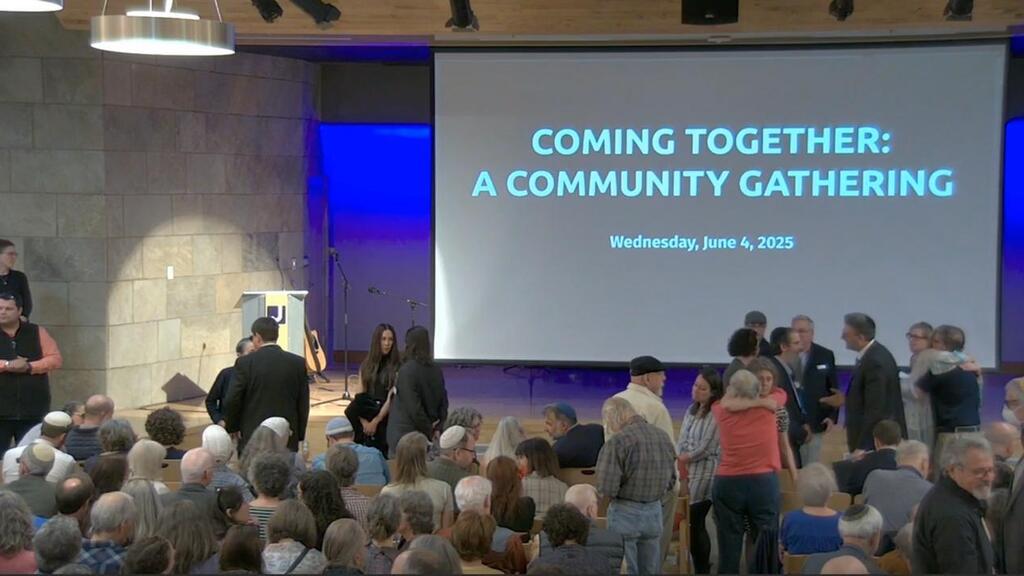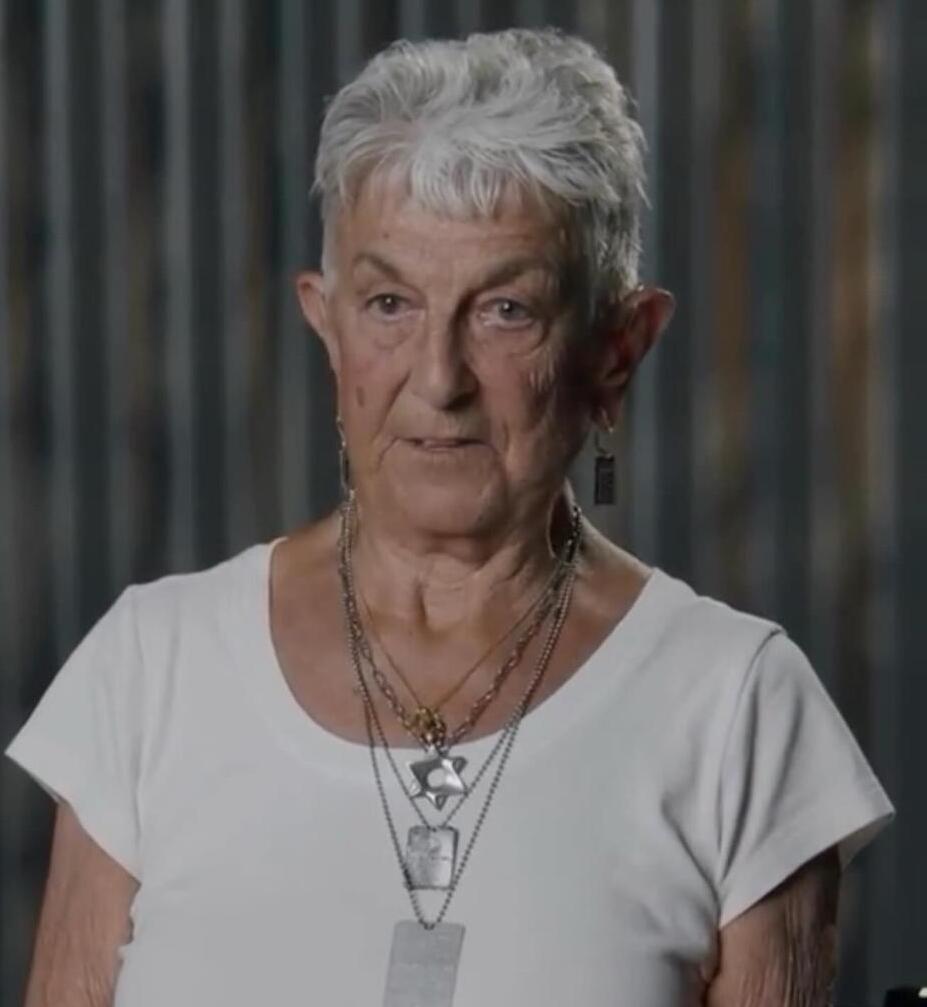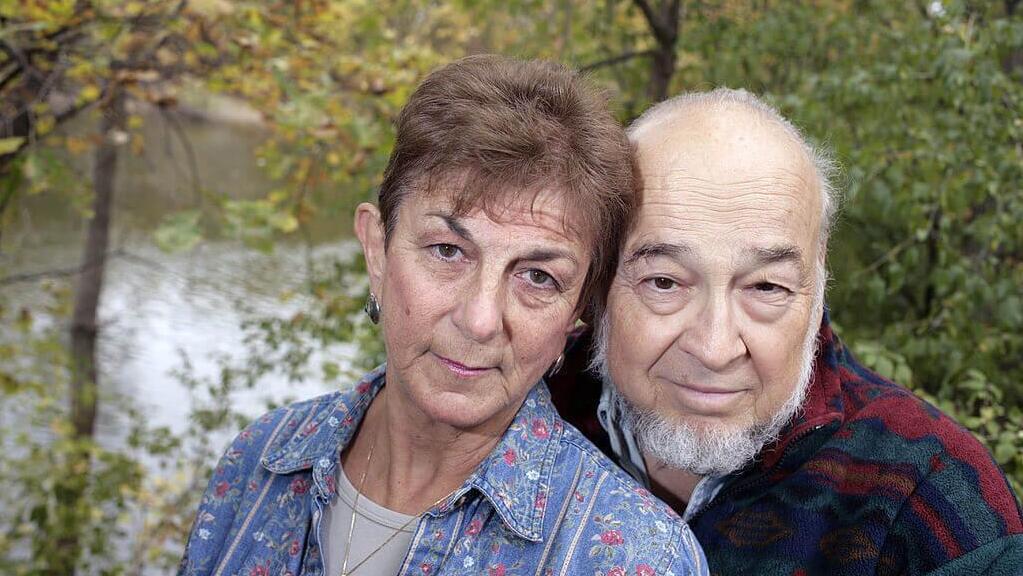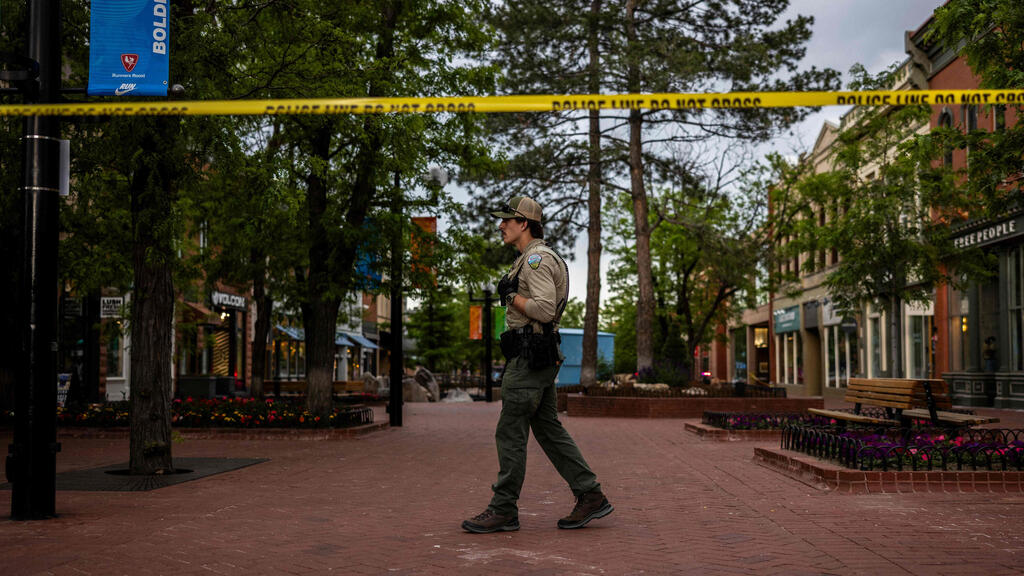After escaping the Holocaust as a child, Barbara Bendler Steinmetz once again found herself facing violent hatred—this time on the streets of the United States. Steinmetz, 88, was among 12 people injured in a firebomb attack carried out by an Egyptian assailant in Boulder, Colorado, during a march to raise awareness for hostages held in Gaza. Speaking after the attack, Steinmetz asked: “What the hell is happening in America, our country?”
A Boulder resident since 2005, she participated in a peaceful walk organized by Run for Their Lives, a group that holds weekly marches to raise awareness of the hostages still held by Hamas. “We are Americans,” Steinmetz told NBC News. “We’re better than this.” She added, “This isn’t about the Holocaust. It’s about a person who wants to burn other people alive. The question is—what is going on here?”
Born in Hungary in 1936, Steinmetz spent her early childhood on the island of Lussinpiccolo—then part of fascist Italy, now Mali Lošinj in Croatia—where her parents ran a hotel. In 1938, when Mussolini’s regime stripped Jews of their citizenship, her family fled to Hungary, then to France and eventually to Portugal as the Nazis swept across Europe.
Steinmetz's father applied for asylum in dozens of countries, including the United States, but was repeatedly denied. “There wasn’t a country he wouldn’t have gladly immigrated to,” she recalled in a recorded interview with the USC Shoah Foundation. “But they didn’t feel the same way about us.” The Dominican Republic ultimately offered refuge, and the family settled in the coastal town of Sosúa in 1941. Steinmetz and her sister attended a Catholic boarding school where only the mother superior knew they were Jewish.
In 1945, after the war, the family moved to Boston. On their way to America, they stopped in New York, where Steinmetz vividly remembers seeing the city skyline for the first time. Her parents worked as dishwashers, and the family spoke no English. Despite the hardship, she eventually became a lecturer and Holocaust educator, though she admitted she long preferred to leave the past behind.
“Most of my life, I wanted to forget it,” she said. But recently, things changed. “Today, people are afraid to wear a Star of David. They’re taking down their mezuzahs. They’re afraid to be Jewish.”
The firebomb attack took place earlier this week on Boulder’s Pearl Street Mall. According to U.S. authorities, suspect Mohamed Sabry Soliman intended to hurl 18 Molotov cocktails at the demonstrators. Rabbi Marc Soloway of Congregation Bonai Shalom, where Steinmetz is a member, said six people from the synagogue were hurt, two of whom remain hospitalized. He said that while Steinmetz sustained only minor burns and is expected to recover physically, the emotional toll is uncertain.
“How does a Holocaust survivor cope with this? It’s horrifying,” he said. “If the suspect thinks this violent act will help the situation in Gaza—he’s terribly wrong.”
The attack sparked an emergency meeting at the White House attended by leaders of Jewish organizations, including the Anti-Defamation League, AIPAC, Agudath Israel, the Conference of Presidents and Orthodox representatives from Brooklyn. Senior Trump administration officials, including Chief of Staff Susie Wiles and Special Envoy for Combating Antisemitism Rabbi Yehuda Kaplan, led the meeting.
Participants were told that President Donald Trump is considering a new executive order restricting entry to the U.S. from certain countries, similar to his 2017 travel ban. While no specific country was mentioned, the Boulder attack was cited as justification. Department of Homeland Security officials confirmed that Soliman is in the U.S. illegally, and that his wife and five children were detained for deportation—though a federal judge has temporarily halted the process.
Footage of the suspect and protesters injured at the scene in Boulder, Colorado
(Video: Betar USA)
Just hours after the meeting, Trump signed a new proclamation titled “Restricting Entry of Foreign Nationals to Protect the United States from Foreign Terrorists and Other Public-Security Threats.” Effective June 9, the order imposes a full entry ban on citizens from 12 countries—Afghanistan, Myanmar, Chad, the Democratic Republic of the Congo, Equatorial Guinea, Eritrea, Haiti, Iran, Libya, Somalia, Sudan and Yemen—and partial restrictions on seven others.
The stated reasons include poor identity-verification systems, refusal to accept deportees, terrorist activity and widespread visa overstays. Some nations are described as “fertile ground for hostile activity against U.S. citizens and values.” Exceptions include green card holders, diplomats, recognized refugees and Iranian religious asylum seekers.
In 2017, Trump’s first travel ban did not include Egypt. Now, amid rising antisemitic violence, calls for stricter policies are growing. But for Steinmetz, policy debates take a back seat to a deeper moral plea: “Let’s be kind to each other. Let’s be good people,” she said with raw emotion. “That’s all I want people to understand.”
'It was terrifying'
Mark, another victim of the attack, said he realized the suspect was about to throw another Molotov cocktail and saw more in his hands. “People were pulling out their phones to film, like we all do,” he said, “but this man was truly dangerous. It was terrifying. I found myself pushing people back to keep them out of harm’s way.” He said police took about 10 minutes to arrive. “It was tense and frightening. Thankfully, it wasn’t worse.”
Mark described the emotional aftermath, especially survivor’s guilt. “I asked myself—why didn’t I run to save them? Why didn’t I do more?” A friend named Karen helped him see things differently: “She said, ‘In a counter-terror drill, someone guards the perimeter. That’s what you did.’ That changed my perspective.”
4 View gallery


Meeting of the Jewish community and victims of the attack in Boulder
(Photo: Boulder JCC)
The community rallied, he said. “We lived through October 7 on Simchat Torah, and now this on Shavuot. We went from mourning to celebrating together. That was powerful.” He plans to keep marching every week. “What would Israelis do? They’d rebuild. Like after the Sbarro bombing in Jerusalem—one month after 16 were killed, it reopened. We’ll move forward.”
Just two days later, the local Jewish school was again filled with children. “Life goes on—that’s how we cope. We sing ‘Hatikvah’ and keep going—with the strength of community," he said.
Get the Ynetnews app on your smartphone: Google Play: https://bit.ly/4eJ37pE | Apple App Store: https://bit.ly/3ZL7iNv
Israel Bachar, Israel’s consul general to the southwestern U.S., visited the scene and met with victims. One woman, a 30-year Colorado resident, joined the walks only recently. “I just felt I had to do something,” she said. “I never imagined this would happen. I’m still in shock.” She suffered second-degree burns on her legs.
Later that day, the consul met with Colorado’s governor, who promised to boost security at Jewish institutions. He also met with Boulder’s mayor, the state’s attorney general, and another victim. Officials are still investigating the suspect’s family’s possible knowledge of the attack. The day ended with a local community event. “This war was forced on us,” said the consul. “But we will win it.”







